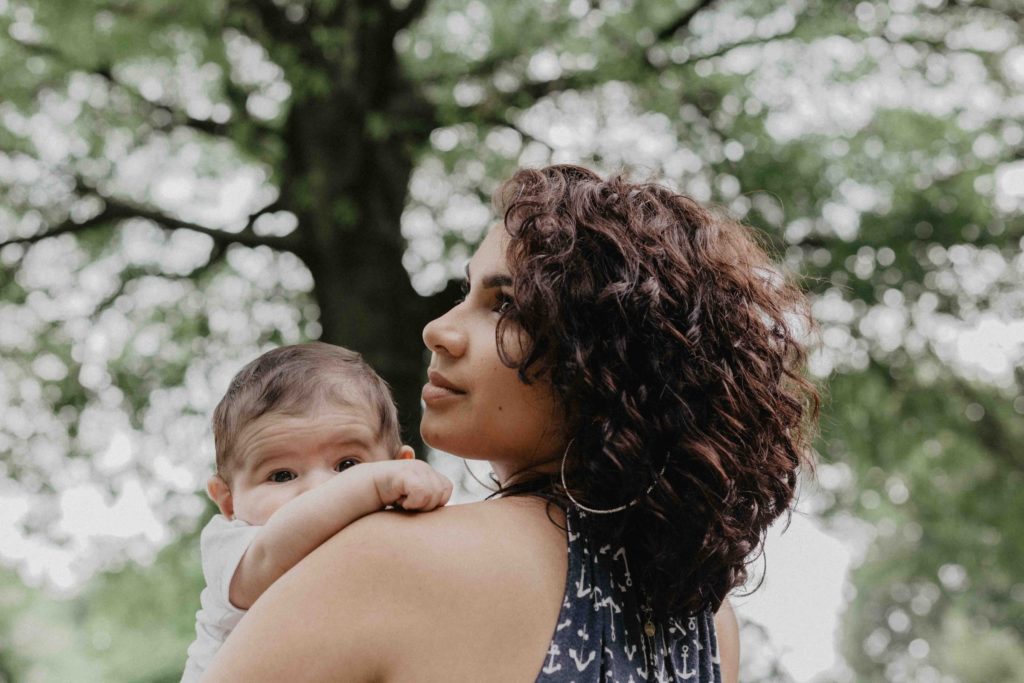[su_tabs active=”2″][su_tab title=”English”]
Abortion is a booming issue in our region with its recent legalization in Argentina just December of 2020. However, the debate focuses mainly on human dignity, an intrinsic and inviolable value that we all have by virtue of existing. So then, no person really has the power to violate an essential human right: to live.

“Abortion must be legal because every child must be desired.” This argument presents several fallacies and inconsistencies. The human dignity of a being, wanted or not, does not disappear at any time. The unborn has this intrinsic, inviolable, and universal value from the moment of conception until its natural death. Voluntary termination of pregnancy violates the human dignity of the unborn who is unwanted by his mother.
Ending the life of a fetus is not a subject which we can decide on simply because it is inside the body of a mother. They are two separate lives that must be respected by society and by any government. If all mothers have autonomy, respect, and freedom, it is not possible to decide on the body of another being, who deserves the respect although it cannot express any emotion, feeling or thought.
Let me tell you a story. My parents found out about my existence just after finishing college. They were very worried and distressed by their complete lack of preparation for the responsibility they now had to face. My father held a forceful posture and recognized the respect for a new life. In theory, he recognized the respect and value of human dignity. In practice, a decision like the one my father made could affect his studies, his plans, his projection and even my mother’s. Despite this, my father decided to guarantee me a quality life, full of opportunities and love.
With the above, I don’t want to be misunderstood. I’m not trying to romanticize the idea of young parents. Life is in stages and we have to live each one in its own time. I believe that past acts can be learned, but also that governments have a responsibility. They must guarantee access to a holistic education that covers both human anthropology and reproductive health. We could avoid the loss of our essence as human beings, and the degradation of an individual with dignity and intrinsic worth.

Why should the righteous pay for sinners? The solution is not the termination of pregnancy with the interruption of the life of a second being. The real solution is a holistic education that covers human anthropology and reproductive health. These subjects must compliment each other where one must teach about the concept of life from its anthropological sense and objective values from a transcendental and universal perspective. Young people must understand the implications of a new life in the world, and the responsibilities that this entails. In other words, young people must understand that bringing a life into the world must be done in a responsible way and in a timely manner with emotional and economic stability.
[su_divider top=”no” size=”1″ margin=”10″]
Published: January 27, 2021
Written by Laura Montufar, a WYA certified member
[/su_tab]
[su_tab title=”Spanish”]
Responsabilidad: Un Acto de Amor Y Vida
El aborto es un tema en auge en nuestra región con su reciente legalización en Argentina en diciembre de 2020. Sin embargo, el debate se centra principalmente en la dignidad humana, un valor intrínseco e inviolable que todos tenemos en virtud de existir. Entonces, ninguna persona tiene realmente el poder de violar un derecho humano esencial: vivir.

“El aborto debe ser legal porque todo niño debe ser deseado”. Este argumento presenta varias falacias e inconsistencias. La dignidad humana de un ser, querido o no, no desaparece en ningún momento. El nonato tiene este valor intrínseco, inviolable y universal desde el momento de la concepción hasta su muerte natural. La interrupción voluntaria del embarazo viola la dignidad humana del feto que no es deseado por su madre.
Poner fin a la vida de un feto no es un tema sobre el que podamos decidir simplemente porque está dentro del cuerpo de una madre. Son dos vidas separadas que deben ser respetadas por la sociedad y por cualquier gobierno. Si todas las madres tienen autonomía, respeto y libertad, no es posible decidir sobre el cuerpo de otro ser, que merece el respeto aunque no pueda expresar ninguna emoción, sentimiento o pensamiento.
Déjame contarte una historia. Mis padres se enteraron de mi existencia justo después de terminar la universidad. Estaban muy preocupados y angustiados por su total falta de preparación para la responsabilidad que ahora tenían que afrontar. Mi padre mantuvo una postura contundente y reconoció el respeto por una nueva vida. En teoría, reconoció el respeto y el valor de la dignidad humana. En la práctica, una decisión como la que tomó mi padre podría afectar sus estudios, sus planes, su proyección e incluso la de mi madre. A pesar de esto, mi padre decidió garantizarme una vida de calidad, llena de oportunidades y amor.
Con lo anterior, no quiero que me malinterpreten. No intento romantizar la idea de padres jóvenes. La vida es por etapas y tenemos que vivir cada una en su momento. Creo que los actos pasados se pueden aprender, pero también que los gobiernos tienen una responsabilidad. Deben garantizar el acceso a una educación integral que abarque tanto la antropología humana como la salud reproductiva. Podríamos evitar la pérdida de nuestra esencia como seres humanos y la degradación de un individuo con dignidad y valor intrínseco.
 ¿Por qué deben pagar los justos por los pecadores? La solución no es la interrupción del embarazo con la interrupción de la vida de un segundo ser. La verdadera solución es una educación holística que cubra la antropología humana y la salud reproductiva. Estos temas deben complementarse entre sí donde se debe enseñar el concepto de vida desde su sentido antropológico y valores objetivos desde una perspectiva trascendental y universal. Los jóvenes deben comprender las implicaciones de una nueva vida en el mundo y las responsabilidades que esto conlleva. En otras palabras, los jóvenes deben entender que traer una vida al mundo debe hacerse de manera responsable y oportuna con estabilidad emocional y económica.
¿Por qué deben pagar los justos por los pecadores? La solución no es la interrupción del embarazo con la interrupción de la vida de un segundo ser. La verdadera solución es una educación holística que cubra la antropología humana y la salud reproductiva. Estos temas deben complementarse entre sí donde se debe enseñar el concepto de vida desde su sentido antropológico y valores objetivos desde una perspectiva trascendental y universal. Los jóvenes deben comprender las implicaciones de una nueva vida en el mundo y las responsabilidades que esto conlleva. En otras palabras, los jóvenes deben entender que traer una vida al mundo debe hacerse de manera responsable y oportuna con estabilidad emocional y económica.
[su_divider top=”no” size=”1″ margin=”10″]
Publicado: 27 de enero de 2021
Escrito por Laura Montufar, miembro certificado de WYA.
[/su_tab] [/su_tabs]
WYA’s Human Dignity Curriculum is a one of a kind program that teaches kids Grades 9-12 about excellence that aligns with their inherent worth as a persons. The HDC, paired with TeenFEMM/TeenMEN, helps children understand and develop healthy habits, good decision-making skills, and a strong sense of meaning and purpose. A Spanish version of the HDC is currently underway. Email us at education@wya.net to learn more.







